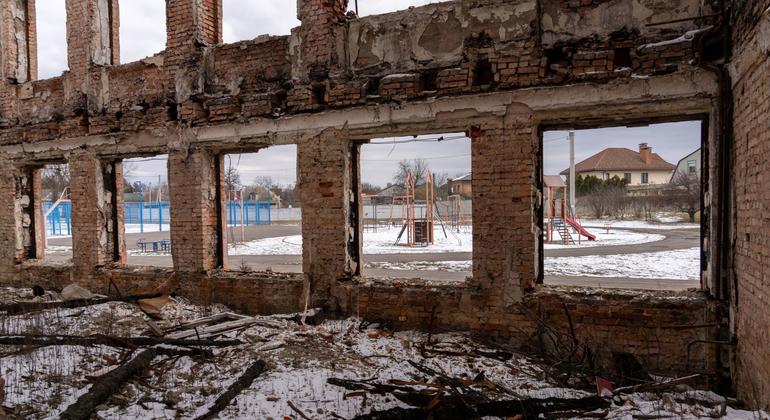Residential buildings in Kharkiv, a city in northern Ukraine, were hit by attacks that killed one person and injured 16, including four children. The UN expressed concern over the violation of international law by combatants and the impact of daily attacks on cities leading to loss of life and vital services. Images of the extensive damage and casualties were shared on social media, highlighting the devastating effects of the ongoing conflict in the region.
In Cameroon, UN agencies have warned of potential food shortages for refugees in the Far North, Adamawa, East, and North regions due to funding shortfalls. Rations have already been reduced, leading to a lack of essential food items in the refugees’ baskets. Without immediate support, further cuts to food assistance could result in increased malnutrition and hunger among vulnerable populations. The situation is exacerbated by the country hosting over half a million refugees and asylum-seekers from neighboring conflict-affected regions.
Wanja Kaaria, WFP Country Director in Cameroon, emphasized the negative impact of hunger on families, especially women and children, who may resort to pulling children out of school and reducing food intake. The humanitarian crises in Cameroon, including violence in the Far North, conflict in the Northwest and Southwest regions, and instability in the Central African Republic, have displaced thousands of people, adding to the existing challenges faced by the country. Despite a $371 million humanitarian response plan, funding is only at five percent, posing a significant threat to the well-being of refugees and asylum-seekers.
The World Health Organization highlighted the vulnerability of older women and women with disabilities to abuse, noting that their experiences are often overlooked in statistics on victims of violence. The WHO called for governments to conduct more comprehensive research to accurately capture the prevalence of gender-based violence among these groups and address their specific needs. Studies have shown higher risks of intimate partner violence and sexual violence among women with disabilities compared to those without, underscoring the urgent need for targeted interventions to protect these marginalized populations.
The publications released by the WHO shed light on the hidden struggles faced by older women and women with disabilities, urging policymakers to prioritize their protection and support. By acknowledging and addressing the unique challenges faced by these vulnerable groups, governments can work towards creating more inclusive and equitable societies. The data and evidence of gender-based violence among older women and women with disabilities underscore the importance of tailored interventions to ensure their safety and well-being in the face of ongoing threats and risks.









